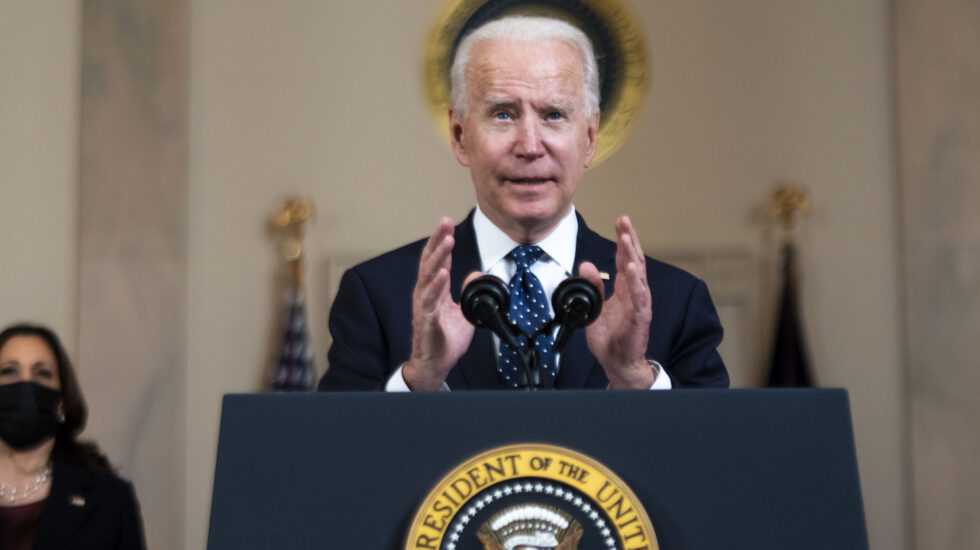The Biden administration unveiled new details about The American Families Plan on Wednesday – a $1.8 trillion proposal that would fight poverty, expand access to education and reduce the cost of child care.
Biden plans on touting the plan in his Congressional address on Wednesday evening.
The Washington Post provides highlights:
The White House says its proposal would provide every American with two years of tuition-free community college; prekindergarten for all 3- and 4-year-olds; and paid family and medical leave for American workers. Among its sweeping agenda items, the plan also calls for devoting hundreds of billions of dollars to fighting child poverty and ensuring affordable child care nationwide.
Combined with his $2.3 trillion infrastructure agenda, the American Families plan would bring Biden’s spending proposals to over four trillion dollars. He wants to fund it through a variety of tax increases and stepped up tax enforcement.
The Wall Street Journal provides analysis on Biden’s political calculations:
Taken together, Mr. Biden’s proposals represent an ambitious effort to redefine the role of government in shaping the economy. Betting that government can be a driving force for growth, the White House is shifting away from long-held assumptions from both parties that the public sector is inherently less efficient than the private, and that bureaucrats should generally defer to markets.
Biden’s plans need congressional approval. While they’re in the minority in both chambers, Republicans seem intent on gumming up any new legislation. “Behind President Biden’s familiar face, it’s like the most radical Washington Democrats have been handed the keys and they are trying to speed as far left as they can possibly go before the American voters ask for the car back,” said Senate Minority Leader Mitch McConnell, a Republican from Kentucky.
But Democrats might not need bipartisan co-operation. They can use a technical maneuver called reconciliation to advance a bill with a simple majority vote. “We will look to bipartisanship wherever we can, but the number one goal is a big, bold plan along the lines of what President Biden has proposed,” said Senate Majority Leader Chuck Schumer, a Democrat from New York.
Another advantage for Democrats: the proposed policies are popular. From The New York Times:
Workers with only high school degrees are often stuck in low-wage jobs, and two-thirds of mothers with young children are employed, and thus need reliable child care. The high cost of quality day care and pre-K puts these services out of reach for many families, who may rely on informal networks of relatives and neighbors who are untrained in early education.
Expanding access to pre-K has been particularly popular over the past decade in states and cities, including some with Republican governors. A large body of research shows that achievement gaps between poor and middle-class children emerge in the earliest years of childhood and are present on the first day of kindergarten. Administration officials contend that free, quality early childhood education can both help cash-strapped parents and build students’ skills in ways that will help them become more productive workers.



